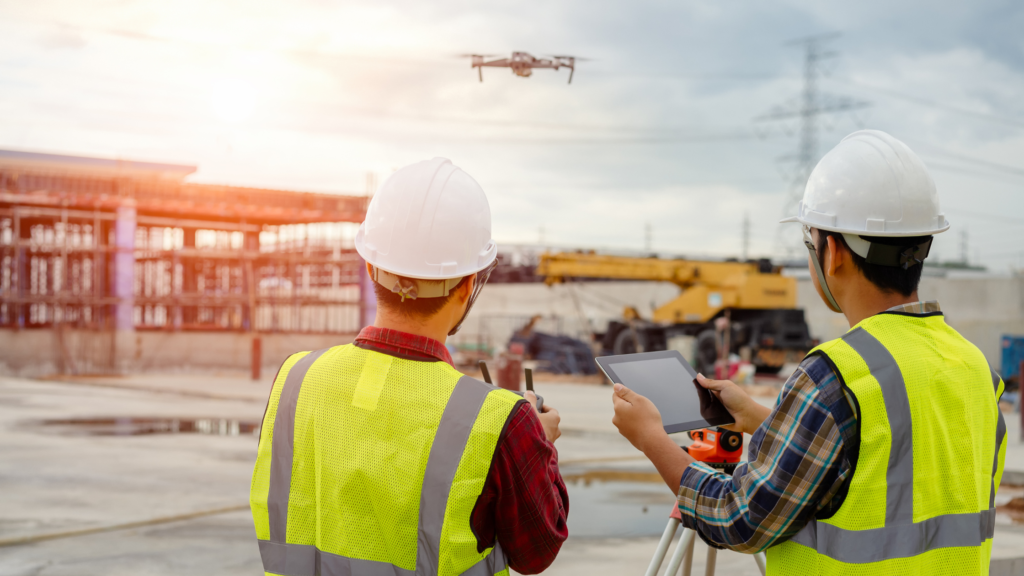How Technology Is Influencing the Future of Construction Staffing

We’re living in a world where technology is beginning to shape the future of construction projects. For example, companies can reduce costs by using drones and 3D printing to survey the best possible building site. But it’s not just about money—many companies are now seeing how technology can help them improve the safety conditions for their workers.
Because the future of construction is increasingly dependent on technology, companies that embrace these advancements will gain a competitive advantage over their competitors not only for bringing in more opportunities but also for attracting more job seekers.
Why Construction Candidates Care About Technological Advancement
New technologies such as wearable construction technology, drones, robots and AI have gone a long way to increase accuracy, reduce human errors and miscommunications, and make modern construction practices much safer for everyone working on-site.
It’s becoming more apparent that construction companies need to bring these technologies to their sites to attract and retain workers. Contractors are looking for employers who invest in technology that can help improve safety, efficiency and communication.
Latest Technological Advancements in Construction
Although construction candidates typically aren’t concerned with the minute details of their prospective employer’s projects, they will gravitate toward companies that are investing in the latest technologies. Candidates want employers who can offer them more than just a good paycheck; they also want employers who will pay top dollar to support these innovative technologies.
Here are some of the latest advancements in construction that candidates are looking for.
1) Wearable Construction Technology
Wearable devices are starting to take over construction sites as they’re becoming a standard in the industry. Construction companies are beginning to use smartwatches, boots, helmets, glasses, bodywear and more to improve safety and efficiency. These devices are highly effective at identifying dangerous environments, sensing falls/accidents and providing hands-free communication between team members.
2) Artificial Intelligence (AI)
The construction industry can solve its most significant challenges, like safety concerns, overspending and schedule overruns, through AI. AI can learn from past experiences and provide analytics that can predict challenges before they happen. For example, it can identify construction errors and suggest new methods for completing project milestones.
3) Drones & Robotics
While robots and drones never replace workers, they help them work more efficiently, even in the most challenging environments. These machines are often used to deliver building materials, inspect project progression and ensure the site is safe for workers.
4) 3D Printing
Construction waste totals over one billion tons annually and is only expected to grow as time progresses. 3D printing allows companies to create a product using a 3D design file from minimal material. Not only does this method produce less waste, but it also makes products of higher quality. In addition, 3D printing would help contribute towards a more automated process, leading to fewer injuries and fatalities on the job.
5) Building Information Modeling
Construction companies are quickly moving towards a BIM-based workflow where each project phase is tracked, assigned and communicated to any team member with access. This process will give companies better visibility of the entire project, allowing for more efficient communication between employees and improved safety conditions.
Stay Ahead of the Construction Curve with RHM Staffing
As construction technology continues to advance, employers need more people who can help stay ahead of the cutting edge.
You can find these professionals through RHM Staffing, one of the Midwest’s leading construction staffing and recruitment agencies. Our network is comprised of candidates who are ready to help your next big project reach its fullest potential.
Contact us today to see how we can help find your construction business next-level talent.
